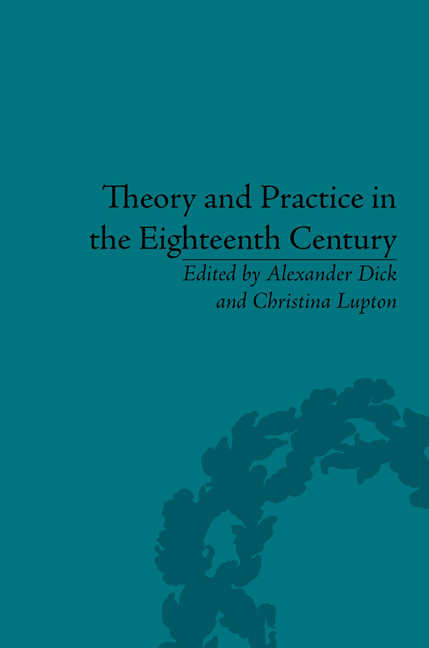Book contents
- Frontmatter
- CONTENTS
- Notes on Contributors
- Introduction
- I Writing Philosophy
- II Reading Hume
- III Thinking Literature
- 9 The Epistemology of Genre
- 10 The Primitive in Adam Smith's History
- 11 Can Julie Be Trusted? Rousseau and the Crisis of Constancy in Eighteenth-Century Philosophy
- 12 After the Summum Bonum: Novels, Treatises and the Enquiry after Happiness
- 13 Music vs Conscience in Wordsworth's Poetry
- Notes
- Works Cited
- Index
9 - The Epistemology of Genre
from III - Thinking Literature
- Frontmatter
- CONTENTS
- Notes on Contributors
- Introduction
- I Writing Philosophy
- II Reading Hume
- III Thinking Literature
- 9 The Epistemology of Genre
- 10 The Primitive in Adam Smith's History
- 11 Can Julie Be Trusted? Rousseau and the Crisis of Constancy in Eighteenth-Century Philosophy
- 12 After the Summum Bonum: Novels, Treatises and the Enquiry after Happiness
- 13 Music vs Conscience in Wordsworth's Poetry
- Notes
- Works Cited
- Index
Summary
Mais je n'avais pas dessein de faire durer la conversation de Cidalise et de Pharsamon, et cependant elle est plus que raisonnablement longue. Auteurs, ne jurez jamais de rien, ne promettez rien; ce que l'on promet aux lecteurs est souvent la chose que l'on tient le moins: tel nous annonce du beau, qui ne nous fournira que du laid. Pour vous, monsieur le critique, qui direz peut-être qu'on se serait bien passé de cette conversation, en ami je vous conseille de quitter le livre; car si vous vous amusiez à critiquer tout ce qu'il y aurait à reprendre, votre critique deviendrait aussi ample que le livre même, et dès lors mériterait une critique aussi.
(I did not intend to prolong this conversation between Pharsamon and Cidalise, and yet it is already unreasonably long. Authors: swear to nothing, promise nothing. What one promises to readers is often the thing one honours the least; he who says that beauty will follow provides us with nothing but ugliness. For you, Mr. Critic, who will perhaps suggest that we could have done without this conversation; as a friend, I advise you to leave the book; for if it would amuse you to criticize everything that might be redone, your critique would become as large as the book, and at that point would deserve a critique as well.) (Marivaux, Pharsamon (1713))
Crucial questions surrounding the nature of genre have often been left out of the project of understanding eighteenth-century fiction. Classification itself has often been the goal of historians of the novel, a project that largely ignores many compelling critiques of such an activity. More importantly, what is often obscured in criticism is the degree to which ‘genre’ itself, as an object of philosophical reasoning, is an important object of understanding for many eighteenth-century novelists. Not only did many writers of eighteenth-century fiction see theoretical questions of genre as being directly connected to issues of linguistic figuration, they often saw them as them being inextricably linked or, rather, as the same problem. I suggest that questions of genre were in fact inextricable from the activity of writing, and that the anxiety about genre produced by this form of reflection was an active force in the institution of eighteenth-century fiction, bridging both its theory and practice.
- Type
- Chapter
- Information
- Theory and Practice in the Eighteenth CenturyWriting Between Philosophy and Literature, pp. 161 - 176Publisher: Pickering & ChattoFirst published in: 2014



